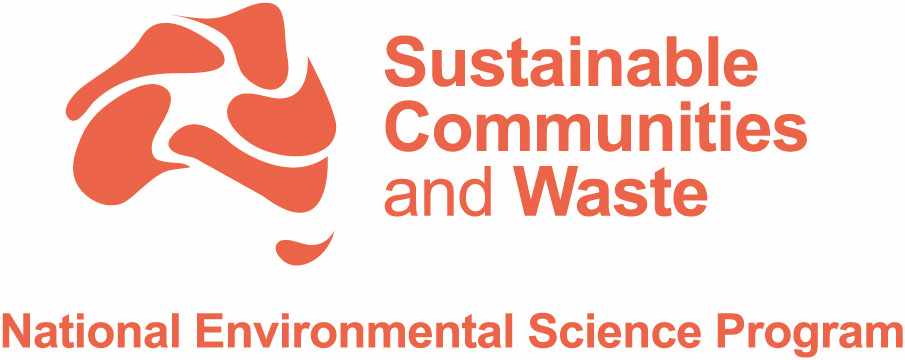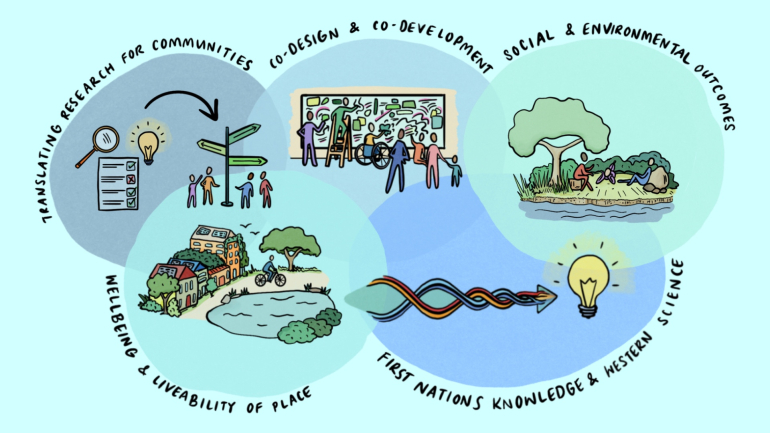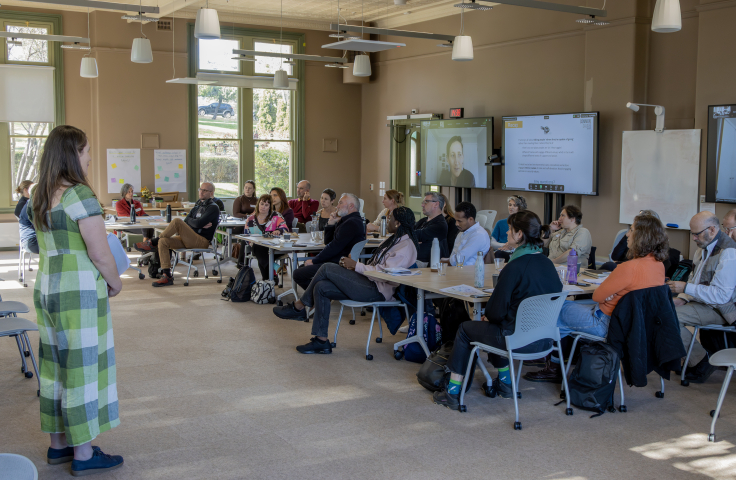A healthy environment is essential to the vitality and prosperity of people. The Sustainable Communities thematic area aims to enhance social and environmental outcomes by working to improve environmental health, human wellbeing and livability of Place. Targeting environmental research and interventions at a community level can ensure sustainable solutions move from the theoretical stage to on-ground implementation. The theme underpins the Hub’s other impact areas: Regional & Remote Approaches and Waste & Circular Economy.
The challenge:
The future of humans and environments are intertwined; poor environmental conditions have direct impacts on human wellbeing and communities' livability. Meanwhile, communities face unique challenges and opportunities when it comes to the transition of environmental, sustainability and circular economy solutions to the local context. The Hub is researching ways to address the impacts of urban heat, environmental degradation, unsafe air quality, water scarcity, waste and microplastics for local communities.
Why Sustainable Communities?
Communities are the level where sustainability is most keenly felt and where actions are often most effective in co-creating successful human and environmental outcomes. Co-designing and co-developing place-based interventions is essential in developing sustainable communities. Research in this theme is designed to inform policy, planning, management and cultural challenges.
Impact areas:
- Community translation: The Hub is working to translate its research into outputs that are accessible and helpful at a community and local level.
- Nature connection: Quantifying and qualifying Australia’s connection to nature can help to enhance approaches to improving social and environmental outcomes.
- Supporting solutions: Exploring and developing nature-based solutions such as urban greening can help to improve place-based climate change adaptation.
- Air quality: Creating equitable access to clean air, air quality science and information to mitigate exposures to improve community health. The community lens means that indigenous populations, public buildings and schools are of particular focus for interventions.
- Indigenous knowledge: Integrating First Nations knowledge and Western Science to co-design robust environmental, social and/or governance interventions.
Sustainable Communities - Research Projects:
P1.02.01 Nature Connections
Understanding how fostering a connection with nature can benefit people and places in Australia.
IP1.02.02 Water sensitive and liveable communities
Supporting effective and appropriate water planning and management approaches and capabilities for regional and remote communities and reinvigorating first nations voices, knowledge and science in water systems.
IP2.02.01 Understanding microplastics
Understanding where microplastics come from, how they move through the environment and how to reduce their impact.
IP2.02.02 Finding fit for purpose technological recycling solutions for regional and remote communities
across Australia
Supporting local councils and industries in developing practical circular economy opportunities for managing waste more effectively.
IP4.02.01 Let’s Yarn about Smoke
Understanding and addressing the impacts of landscape fire smoke on Indigenous communities.
IP4.02.02 How will a changing climate and emissions reduction measures impact sources of air pollution
and secondary pollutant formation?
Investigating how climate policies and emissions reduction strategies affect future air quality.
IP4.02.03 Wood heaters: developing and testing novel solutions to a persistent problem
Developing and testing interventions to reduce wood heater emissions.
IP4.02.04 Evaluation of interventions to reduce air pollution in safe havens and use of Low-Cost Sensors
to identify areas of concern
Assessing the effectiveness of air quality interventions in community settings.
IP5.02.02 (Completed) Exploring opportunities for increasing value recovery from used tyres and conveyor belts in WA
Understanding what’s needed to scale circular economy solutions, with a focus on tyre recovery.




